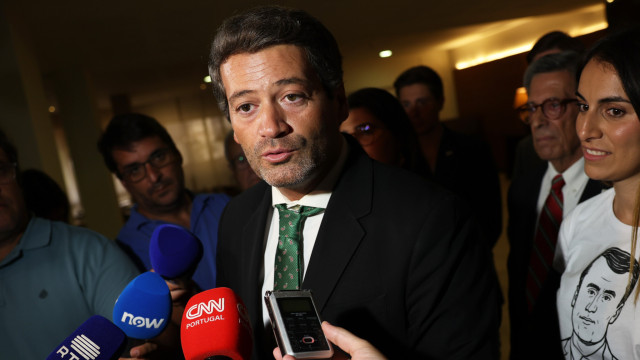
The stance of Fernando Alexandre and his ministerial team comes in response to a public position taken by rectors and researchers, addressed to the Presidency of the Republic and the Government. They express concerns that the dissolution of the Foundation for Science and Technology (FCT) might hinder scientific production and criticize the “lack of transparency” in the process, regretting that they have not been consulted.
At the center of this debate is the ongoing reform within the Ministry of Education, Science, and Innovation (MECI) and the establishment of the Research and Innovation Agency (AI2), which will assume the roles currently held by the FCT and the National Innovation Agency (ANI).
The abolition of the FCT has been particularly contentious. In their position submitted to the Presidency, where the government’s decree awaits proclamation, the rectors and researchers voice criticism of what they describe as a “radical break” and the manner in which the executive has managed the process.
“There is a consensus within the scientific community regarding the need to enhance the functioning of funding agencies (FCT and ANI) as well as the mechanisms for valuing knowledge within companies and public bodies. However, the acknowledged issues do not justify the radical measure of dissolving the FCT,” they argue in the document accessed by Lusa.
In response, the team led by Fernando Alexandre clarifies that the public position does not bind the council of rectors or other groups of academics and researchers. They dispute that dissolving the FCT and forming AI2 is a “radical measure,” arguing instead it is “part of a broader structural reform” within the MECI. The aim, they emphasize, “is not to extinguish competencies, but to integrate them coherently, avoiding current fragmentation and functional duplication, as recognized by the scientific and innovation community.”
The MECI asserts that the new agency, “which will replace an ossified structure,” was formed with the “direct involvement” of the FCT and ANI presidents. It will have a “clear mandate,” “multi-annual financing, anchored in a five-year program contract, and a mission charter,” ensuring its “independence from political power” with necessary instruments and funding to fulfill its mission.
“The creation of the new Agency represents an executive and operational decision aimed at increasing the efficiency and effectiveness in managing science and innovation funding,” reads the document signed by Fernando Alexandre. It further notes the necessity of “a new financing paradigm, based on strategic planning.”
“This strategic planning, to be outlined in the program contract, will emerge from deep, broad, and participatory reflection,” the MECI document states, emphasizing that the scientific community will be invited to discuss and identify strategic challenges, budget allocations for research and development, and revisions to the Science Law.
The MECI also disputes claims that there are no “solid diagnoses justifying the reform,” highlighting a recommendation from the National Council of Science, Technology, and Innovation (CNCTI), which, according to the Government, “is not derived from an abstract opinion, but from work grounded in concrete situations.”
“The document highlights issues of dispersion and duplication within the scientific and innovation system. It notes, for instance, the existence of over 800 entities in the Portuguese research and innovation ecosystem, the proliferation of funding instruments with distinct rules, mismatched schedules, and redundant bureaucracy that compromise efficiency and predictability,” reads the MECI’s response.
Fernando Alexandre and his team also reject concerns over the future of fundamental science in Portugal, ensuring that it “will not be devalued.”
“The multi-annual budget allocation for fundamental science will be protected for this purpose and will originate from tax revenues,” states the document, which also emphasizes that the dual oversight of the new agency—by the MECI and the Ministry of Economy and Territorial Cohesion—”aims to reinforce synergy between financing instruments without affecting investment and focus on fundamental science.”
“The coordination between science and the economy is not subordination: it is a recognition that scientific knowledge should be able to translate into economic, social, and cultural progress,” asserts the Government.
Regarding AI2’s public company status, the Government defends it, stating that it “ensures strategic coherence and execution capacity, aligning with national priorities while providing greater operational autonomy, agility in hiring qualified resources, ease in managing international projects, and increased effectiveness in applying European funds.”




